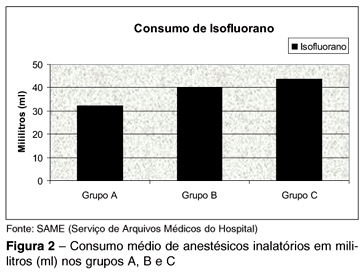OBJETIVE: To evaluate the efficacy of suprascapular nerve block in combination with the infusion of anesthetic into the subacromial space compared to an interscalene block. METHODS: Forty-five patients with small or medium isolated supraspinatus tendon lesions who underwent arthroscopic repair were prospectively evaluated and randomly assigned to three groups of 15, each with a different combination of anesthetic methods. The efficacy of post-surgical analgesia was measured using the visual analogue scale for pain, and analgesic, anti-inflammatory, and opioid drug consumption. Inhalation anesthetic consumption during surgery was compared among the groups. RESULTS: Statistical analysis found no significant differences among the groups regarding anesthetic consumption during surgery or postoperative analgesic efficacy during the first 48 hours. CONCLUSION: Suprascapular nerve block with infusion anesthetic into the subacromial space is an excellent alternative to interscalene block, particularly in hospitals where a nerve stimulator device is unavailable.
Rotator cuff; Shoulder; Arthroscopy; Anesthesia; Nerve block




